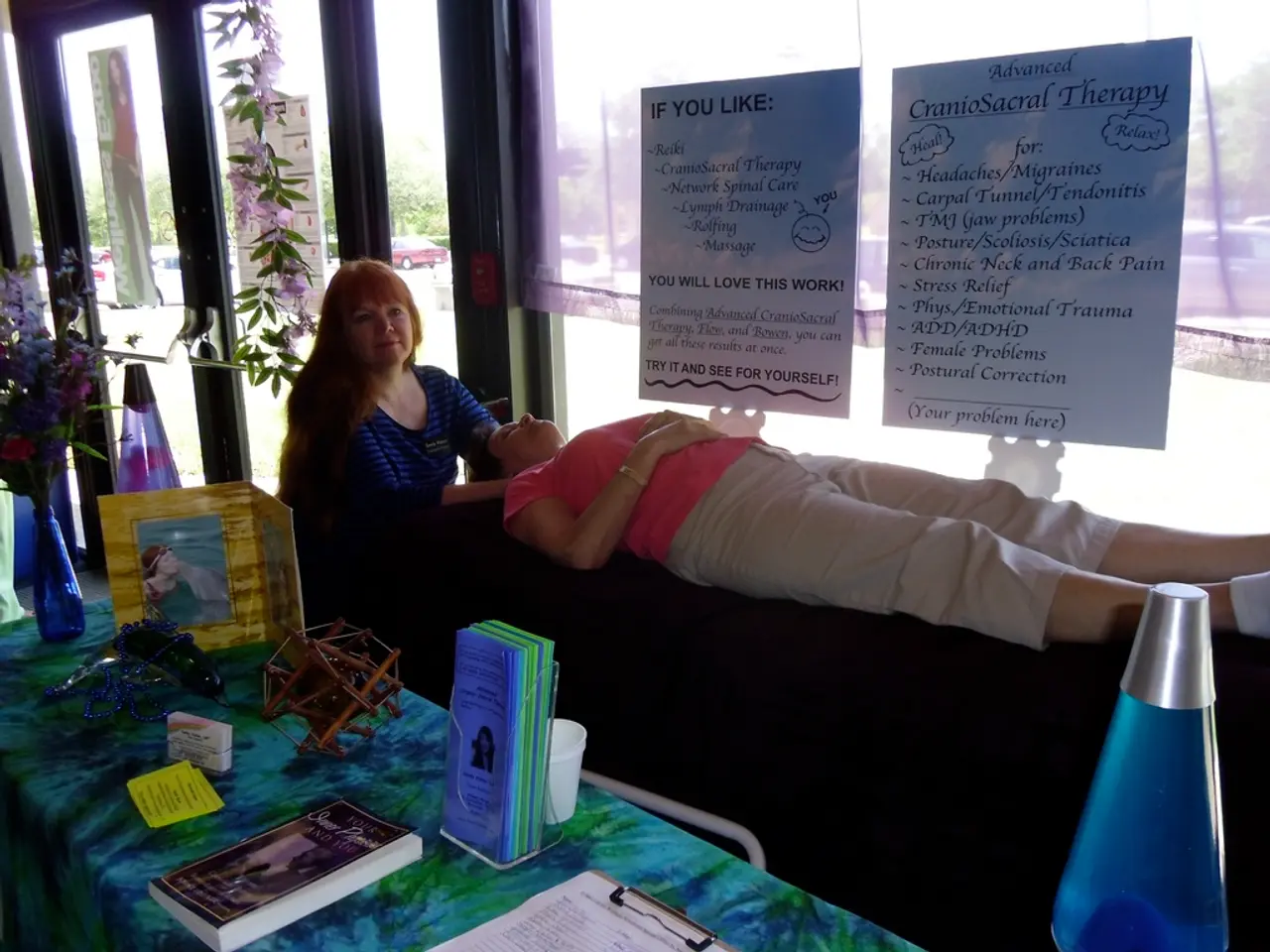Discovering suitable drugs for treating Post-Traumatic Stress Disorder (PTSD): A personal guide
PTSD, or Post-Traumatic Stress Disorder, is a type of anxiety disorder that can occur after a traumatic event, threat, or life-threatening experience. Symptoms of PTSD can include anxiety or fear that alter behavior, even after the perceived threat has passed.
Two common classes of medications used to treat PTSD are Selective Serotonin Reuptake Inhibitors (SSRIs) and Serotonin-Norepinephrine Reuptake Inhibitors (SNRIs).
SSRIs selectively increase serotonin levels by blocking the reuptake of serotonin into the presynaptic neuron, enhancing serotonin availability in the brain. This action helps improve mood, sleep, and emotional regulation, which are often disrupted in PTSD. SSRIs like sertraline, fluoxetine, and paroxetine are commonly recommended first-line treatments for PTSD and are FDA-approved for this indication, showing modest improvement over placebo in about half of patients.
On the other hand, SNRIs increase both serotonin and norepinephrine levels by inhibiting the reuptake of these two neurotransmitters. This dual action can be beneficial particularly for patients who do not respond well to SSRIs or have additional symptoms such as chronic pain alongside PTSD. SNRIs such as venlafaxine are also first-line options with evidence supporting their efficacy, often used when SSRIs are insufficient or contraindicated.
In terms of side effects and tolerability, SSRIs generally have fewer side effects and are better tolerated at higher doses compared to other antidepressants. However, side effects of SSRIs can include drowsiness, gastrointestinal symptoms, dry mouth, weight changes, dizziness, fatigue, headache, nervousness, shaking, sexual dysfunction, and hives.
Fluoxetine, an SSRI, comes as a tablet, capsule, delayed-release capsule, and liquid and treats PTSD with a daily dose of 20-80 milligrams. Paroxetine, another SSRI, comes in tablet, capsule, and liquid form and treats PTSD with a daily dose of 20-60 milligrams.
Venlafaxine, an SNRI, comes as a tablet or extended-release capsule and treats PTSD with a daily dose of 75-300 mg. It may cause drowsiness, high blood pressure, dizziness, headache, nightmares, loss of appetite, weight loss, pain, burning sensations, or numbness, hot flashes or flushing, problems urinating, chills, ringing in the ears, sexual dysfunction, enlarged pupil(s), problems breathing or swallowing, chest pain, irregular heartbeat, seizures, unusual bruising or bleeding, problems with coordination or motor functions, hallucinations, coma, and should not be taken with MAOIs.
Other options for treating PTSD include talk therapy and other medications such as antianxiety medication, mood stabilizers, and alpha-1 blockers. Treatment with SSRIs and SNRIs should begin slowly, and people should monitor side effects. The prescribing doctor will want regular check-ins during the first few weeks. The doctor may recommend talk therapy or other medications alongside antidepressant treatment.
If a person is taking venlafaxine and is awaiting surgery, they should let the surgeon know they are taking this medication. People should contact their doctor immediately if any of the following side effects occur: problems breathing or swallowing, chest pain, irregular heartbeat, seizures, unusual bruising or bleeding, problems with coordination or motor functions, hallucinations, coma.
It is normal to feel some residual fear and anxiety following a traumatic event. PTSD occurs when a person experiences debilitating anxiety and fear related to the event for an ongoing period of time, at least 1 month. If you or someone you know is experiencing symptoms of PTSD, it is important to seek help from a medical or mental health professional. They can diagnose PTSD and help develop a treatment plan.
- Science has identified two common classes of medications, SSRIs and SNRIs, that are effective in improving mental health for individuals dealing with Post-Traumatic Stress Disorder (PTSD).
- Selective Serotonin Reuptake Inhibitors (SSRIs) like sertraline, fluoxetine, and paroxetine, are frequently recommended as first-line treatments for PTSD due to their ability to enhance serotonin availability in the brain, which helps improve mood, sleep, and emotional regulation.
- Health-and-wellness professionals often recommend a combination of antidepressant medication (such as SSRIs or SNRIs) and talk therapy for the management of PTSD, as it ensures holistic care for the patient's mental health.




